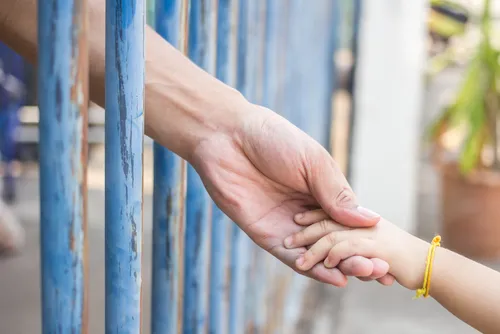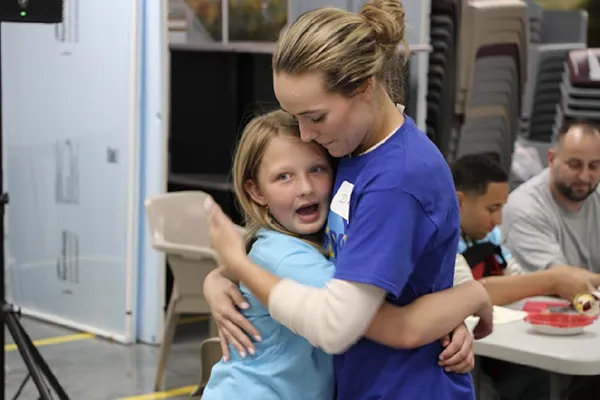The news of a parent’s incarceration can feel like a bombshell, not only within the family but also within the community. Growing up in a small hometown where everyone knows each other can amplify the sense of isolation and embarrassment. When my father was incarcerated, I was only 18 and had just graduated high school with a class of 18 students. The tight-knit nature of our town meant that news traveled fast, and battling the stigma that came with my father’s imprisonment became one of the most challenging aspects of my life.
The Weight of Stigma
Stigma surrounding a parent’s incarceration can feel overwhelming. The whispers, the sideways glances, and the sudden changes in how people interact with you can be incredibly painful. This stigma doesn’t just affect the individual; it impacts the entire family, casting a shadow over daily life and altering relationships with friends, neighbors, and even extended family members.
Personal Experience with Stigma
For me, the challenge was intensified by the close-knit nature of my community. Every glance seemed to carry a silent question or judgment. The places where I once felt a sense of belonging suddenly felt foreign and hostile. Friends who didn’t know how to react either distanced themselves or treated me differently, sometimes out of misguided sympathy, other times out of discomfort.
Understanding Stigma and Its Impact
Stigma is a powerful social force that can shape people’s perceptions and behaviors. It stems from a lack of understanding and fear of the unknown. When someone’s parent is incarcerated, the stigma often comes from stereotypes and misconceptions about crime, punishment, and familial responsibility. People may unfairly assume that the child is somehow tainted by the parent’s actions or destined to follow a similar path.
The impact of this stigma can be profound:
- Emotional Toll: Feelings of shame, guilt, and isolation can become overwhelming. It’s common to internalize the negative judgments of others, which can damage self-esteem and mental health.
- Social Isolation: The fear of being judged or ostracized can lead to withdrawing from social interactions, missing out on important support networks.
- Academic and Professional Challenges: Stigma can also seep into academic and professional environments, affecting opportunities and the way one is perceived by teachers, employers, and colleagues.
Battling Stigma: Steps Toward Empowerment
Battling stigma is not easy, but it is possible. Here are some strategies that helped me, and may help others, in overcoming the stigma of having an incarcerated parent:
- Educate Yourself and Others: Understanding the realities of incarceration and its impact on families is crucial. Educate yourself about the criminal justice system and share this knowledge with others. Dispelling myths and providing facts can change perceptions over time.
- Find a Support Network: Connect with others who are in similar situations. Support groups, both in-person and online, can provide a sense of community and understanding. Knowing you’re not alone can be incredibly empowering.
- Open Communication: Talk openly with trusted friends and family members about your experiences and feelings. Honest conversations can foster empathy and reduce misunderstandings.
- Focus on Your Strengths and Goals: Remember that you are more than your circumstances. Focus on your strengths, set personal goals, and work towards them. Achieving personal success can be a powerful way to combat negative stereotypes.
- Seek Professional Help: Therapy or counseling can provide valuable tools for managing the emotional toll of stigma and developing healthy coping mechanisms.
Advocacy and Raising Awareness
Beyond personal strategies, becoming an advocate for change can be a powerful way to combat stigma on a larger scale. Sharing your story, as difficult as it may be, can raise awareness and promote understanding. Through my initiative, “The Silent Victims: Guiding and Empowering Youth of Incarcerated Parents,” I aimed to provide support and advocacy for others in similar situations. Creating a platform for these voices can help dismantle the stigma piece by piece.
Conclusion: Redefining Your Narrative
The question, “What will people think of me if my parent is in jail?” is laden with the weight of stigma and judgment. But it’s important to remember that their perceptions do not define you. Your worth and character are not determined by the actions of your parent. By educating others, building a strong support network, focusing on your personal strengths, and advocating for change, you can redefine the narrative and break free from the constraints of stigma.
Living with the stigma of having an incarcerated parent is undeniably challenging, but it also provides an opportunity to become a beacon of resilience and change. Your experiences can inspire others, foster empathy, and ultimately, contribute to a more understanding and supportive community. Together, we can work towards a world where children of incarcerated parents are seen for who they truly are: individuals with their own strengths, aspirations, and the potential to make a positive impact.






